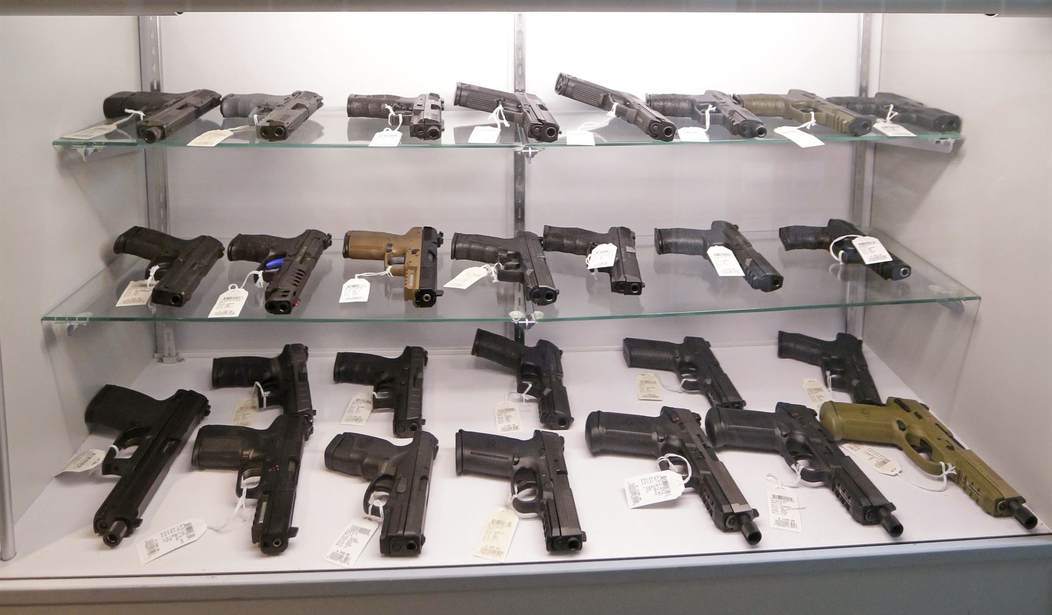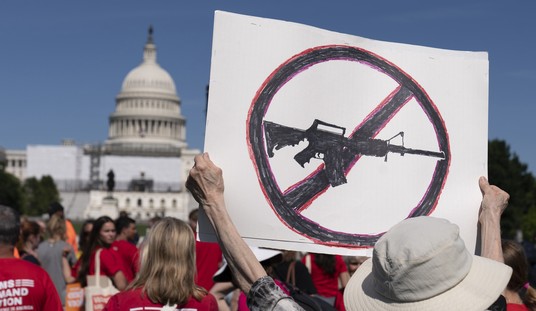Prior to Russia’s invasion of Ukraine, we saw a lot of people buying guns there. That wasn’t very surprising. I mean, having a massive army on your doorstep clarifies the mind wonderfully. That leads to increased gun sales for obvious reasons.
Almost two weeks later, the one-time superpower is bogged down and not making the headway they expected.
Yet the aggression has other Eastern European nations concerned, and folks in Lithuania don’t seem inclined to wait for the Russians to mass along their border.
Gun buyers have been flocking to Lithuania’s stores since the start of the war in Ukraine, with sales increasing up to eight times and applications for gun licences doubling.
Shooting ranges have also reported a large increase in clients seeking to refresh their skills or even those wishing to learn to shoot without an intention to buy a gun.
Sales have shot up for all categories of weapons but the largest demand is for handguns used for self-defence and semi-automatic weapons that could also be used in military situations. Some stores have reported selling as many handguns in a week as during the preceding year.
“I already have small calibre rifles at home but have never used them. But now, the disturbances are completely unimaginable. I am very scared for my children,” one buyer says.
Store owners say that most clients now come to buy their second guns and with a clear idea of what they want.
“Many more clients are coming. they buy semi-automatic rifles – unfortunately, I have no more to show them, I sold them out – and handguns,” says gun store manager Gytis Misiukevicius.
“People buy handguns most probably for self-defence, as they are of course not suitable for war. So they buy them out of their insecurity, to protect themselves, their families and relatives should something happen. Whereas semi-automatic rifles, they can be used for firefights.”
In other words, people want rifles they can fight with, but they buy handguns because that’s what they can manage.
Gun laws in Lithuania aren’t altogether terrible. They require a permit in order to buy a firearm, but it’s a shall-issue kind of thing. For Europe, that’s about as good as it gets when it comes to gun sales.
But I’m afraid I can’t agree with Misiukevicius about whether a handgun is useful in a fight.
No, don’t get me wrong. You’re not going to repel an invasion force with a handgun. But what it will allow you to do is get close to isolated troops, take them out, and then take their firearms. They’re not the best tool, but they’re not exactly useless.
After all, the US-made Liberator single-shot pistol was premised on precisely that use.
Still, it’s good to see Lithuanians taking the threat seriously, at least based on gun sales numbers. They’ve got a few advantages that Ukraine didn’t have–namely, membership in NATO–which may keep Russian aggression in check, but Russia also would need to account for a population that is arming itself and preparing to defend their homeland.
They didn’t do that with Ukraine and how has that worked out for them so far?
The truth of the matter is that any nation is susceptible to invasion by a larger, more aggressive nation. Yes, even us, though it’s far less likely in our case.
In Eastern Europe, Russia is less than pleased that it no longer has the influence of the Soviet era and seems determined to get it back, even if they have to take a baseball bat to people’s knees to make that happen.
Yet these nations have gotten a taste of freedom and kind of like it. They don’t want to go back to being Russian puppet states.
While the governments get prepared on a macro scale, it’s good to see individuals doing the same. Gun sales should be going up not just in Lithuania, but all over Europe.







